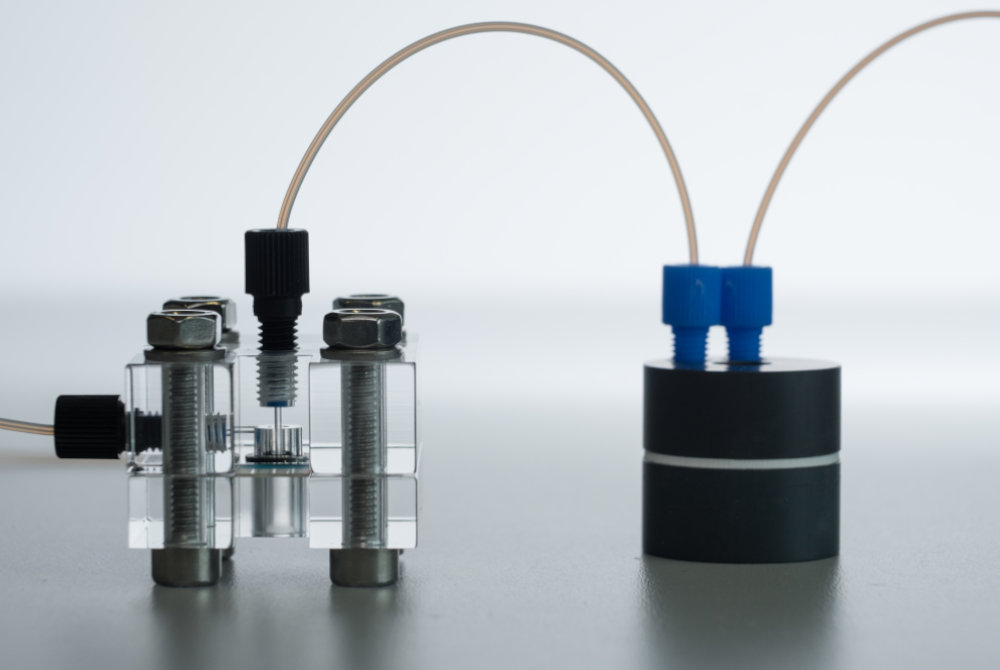
Microfluidic flow cell with integrated antibody-based biosensor for the detection of tetanus toxin.
Source: BAM
Tetanus is among the most severe infectious diseases and presents a significant health risk, particularly in regions with limited access to healthcare services. More than 80 percent of newborns who contract tetanus die from the disease. Early, reliable, and locally deployable diagnostics are therefore essential. While conventional detection methods such as PCR (polymerase chain reaction) or ELISA (Enzyme-linked Immunosorbent Assay) offer high sensitivity, they are often costly, time-consuming, and not well suited for use in low-resource settings.
In an interdisciplinary project, researchers at BAM have developed an electrochemical biosensor that can detect the detoxified tetanus toxin, also known as tetanus toxoid, as a model target, under practical conditions with high sensitivity and selectivity. The core element of the sensor is a custom-synthesized iron-based metal-organic framework known as Fe-MOF. This material combines electrical conductivity with magnetic properties, which enables a simplified sensor setup and cost-effective production.
To further enhance conductivity, the Fe-MOF was functionalized with the aromatic amino acid L-phenylalanine. Specific antibodies against the tetanus toxin were then covalently attached to the MOF surface. Detection is performed using cyclic voltammetry. When the tetanus toxin binds to the immobilized antibody, the current signal decreases. This signal reduction forms the basis of the measurement. The extent of signal reduction correlates directly with the toxin concentration. Compared to previously described electrochemical sensors, the BAM system offers a simplified and affordable design, a low detection limit of 9.4 nanograms per milliliter and high selectivity against biologically similar molecules such as serum albumin. The focused development of functional nanomaterials and their integration into practical sensing platforms highlights BAM’s expertise in the field of applied materials research.
The modular sensor concept allows for flexible use and can be adapted to detect other biomarkers by exchanging the recognition element. This includes applications in infectious disease diagnostics, environmental analysis, or early cancer detection. The system provides a promising basis for portable point-of-care testing technologies.
Antibodies functionalized magnetic Fe-metal-organic framework based biosensor for electrochemical detection of tetanus neurotoxin
Sarita Devi, Soraya Riedel, Sarah Döring, Lukas Hiller, Archana Kaliyaraj Selva Kumar, Sabine Flemig, Chandan Singh, Zoltán Konthur, Vasile-Dan Hodoroaba, Rudolf J. Schneider
Sensors and Actuators B: Chemical, Volume 431, 2025, 137381


